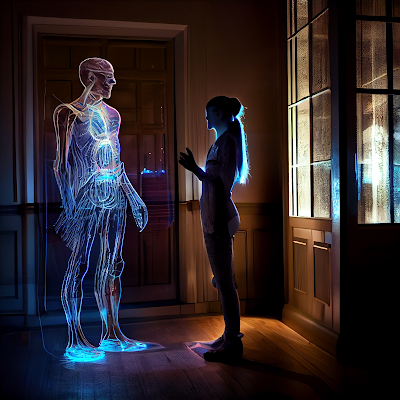Objective Reality: Is it Just a Myth?
Introduction
The question
of whether it is possible to experience anything objectively has been a topic
of debate in the fields of philosophy and psychology for centuries. While some
argue that all perception is inherently subjective, shaped by our individual
perspectives, biases, and past experiences, others contend that there is a
level of objectivity that can be attained through careful observation and
scientific methods. In this blog post, we will explore both arguments and
discuss the limitations of both subjective and objective perception.
Subjectivity of Perception
One of the
main arguments for the subjectivity of perception is that our senses are not
perfect and can be deceived. Optical illusions demonstrate that our visual
system can be tricked by certain patterns and shapes. In addition, our brains
are constantly making predictions and filling in gaps in our sensory
information, which can lead to further inaccuracies in our perception.
Furthermore, our emotions, beliefs, and expectations can also influence how we
perceive the world around us.
Another
argument for the subjectivity of perception is that our individual perspectives
can shape how we experience the world. Our cultural background, upbringing, and
personal experiences can also shape how we perceive and interpret the world
around us. For example, two people may look at the same painting and have vastly
different interpretations of its meaning or beauty.
Objectivity of Perception
Despite the
arguments for subjectivity, there are also those who argue for the possibility
of objective perception. One of the main arguments for objectivity is that
there are certain facts and objective truths that can be determined through
careful observation and scientific experimentation. For example, in the field
of physics, scientists can measure the speed of light and determine that it is
constant, regardless of the observer's perspective.
Another
argument for objectivity is that our brains are wired to perceive the world in
certain ways, which allows us to make sense of our surroundings and navigate
through it. Our visual system is wired to recognize patterns and shapes, which
allows us to identify objects and make sense of our environment.
Balancing Subjectivity and
Objectivity
While it is
true that our perception can be influenced by our individual perspectives,
biases, and past experiences, it is also possible to attain a level of
objectivity through careful observation and scientific methods. It is important
to recognize that there are objective facts and truths that can be determined
through careful experimentation and observation.
Ultimately,
it is a question of balancing the subjective and objective aspects of
perception, and understanding the limitations of both. We can strive for
objectivity by applying scientific methods and minimizing our biases, but we
must also recognize the role that our individual perspectives play in shaping
our perception.
Conclusion












Comments
Post a Comment